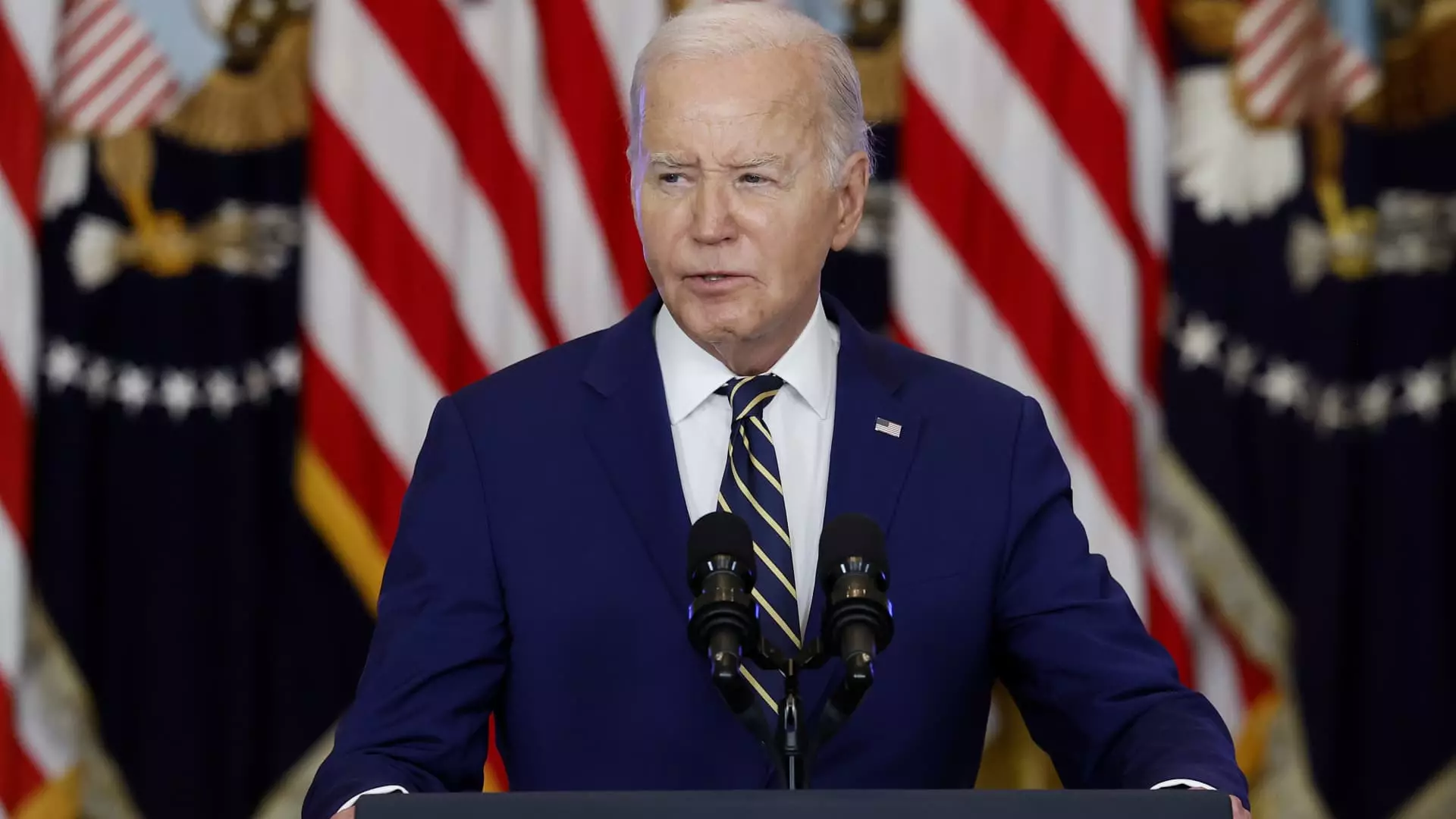In recent times, the Biden administration has been scrutinized for its evolving stance on immigration and asylum procedures at the U.S.-Mexico border. Amid growing electoral pressure and public concern regarding immigration rates, the administration has chosen to intensify its asylum restrictions. The implications of this decision resonate deeply within the contexts of human rights and national policy, necessitating a closer look at these developments and their broader ramifications.
The latest adaptations to asylum policies come in response to the perceived influx of migrants at the southern border. These policies underscore a shift towards prioritizing border security over humanitarian considerations. The newly instituted rules, evolving from previous regulations set in June, delineate strict criteria that must be met before asylum can be granted during times of perceived border emergencies. While the earlier guidelines allowed for restrictions when daily migratory attempts exceeded 2,500, the revised criteria demand that numbers remain below 1,500 for a considerably longer duration—specifically, nearly a month. Additionally, the expanded definition of “migrant children,” now inclusive of all children regardless of nationality, adds layers of complexity.
Such modifications appear driven less by an immediate need and more by the pressures of upcoming elections. Indeed, the administration’s announcement seems to herald an intention to pacify voters who are increasingly apprehensive about immigration levels. This protective stance can often lead to harrowing outcomes for those fleeing crises, as it diminishes access to sanctuary for individuals desperately seeking safety.
The repercussions of these strict asylum regulations extend beyond mere bureaucratic adjustments—they impact real lives. Critics from various human rights organizations have raised alarms about the implications of reduced asylum access during times of crisis. Many asylum seekers fleeing persecution may find themselves trapped in precarious situations, unable to navigate the tightened regulations imposed by the government.
Furthermore, while the Department of Homeland Security asserts that these restrictions have led to a significant decline—over 50%—in daily encounters at the border, one must question the ethics of such a success metric. The decrease in encounters can be viewed as an indication that fewer asylum seekers are attempting the journey, rather than a sign of effective policy. It raises critical questions about the true cost of controlling immigration numbers: are we prioritizing statistics over humanity?
The fact that the restrictions announced in June have never been lifted suggests a cycle of sustained pressure on vulnerable populations, further complicating the narrative. For advocates of humane immigration reform, these policies represent a heartbreaking retreat from the principles of compassion and protection that the U.S. has historically championed.
The political landscape surrounding immigration policy reveals another dimension of the ongoing debate. With significant pressure from Republican nominees and their supporters, the Biden administration is evidently attempting to mitigate accusations of insufficient action on immigration. The timing of these policies also coincides with Vice President Kamala Harris’s recent visit to the southern border, emphasizing the urgency of depicting a proactive governmental response toward immigration challenges.
While Harris has attempted to brand her advocacy as a balanced approach—one that seeks to secure the border while simultaneously developing a humane immigration process—her rhetoric may not fully align with the realities imposed by harshest asylum rules. The calculated phraseology hints at an attempt to maintain political favor while confronting a complex crisis. However, it remains to be seen whether such strategies will genuinely resonate with voters, especially those affected by the ramifications of these stringent measures.
The recent tightening of asylum restrictions by the Biden administration reflects a landscape fraught with political destabilization and ethical dilemmas. As the nation navigates its immigration challenges, there is an urgent need for a movement toward policies that balance national security with humane considerations for those seeking refuge. The call for comprehensive reform must transcend partisan politics and prioritize meaningful dialogue that recognizes the human rights of all individuals. Only through such engagement can the U.S. hope to reclaim its commitment to being a bastion of safety for those in need.



Leave a Reply